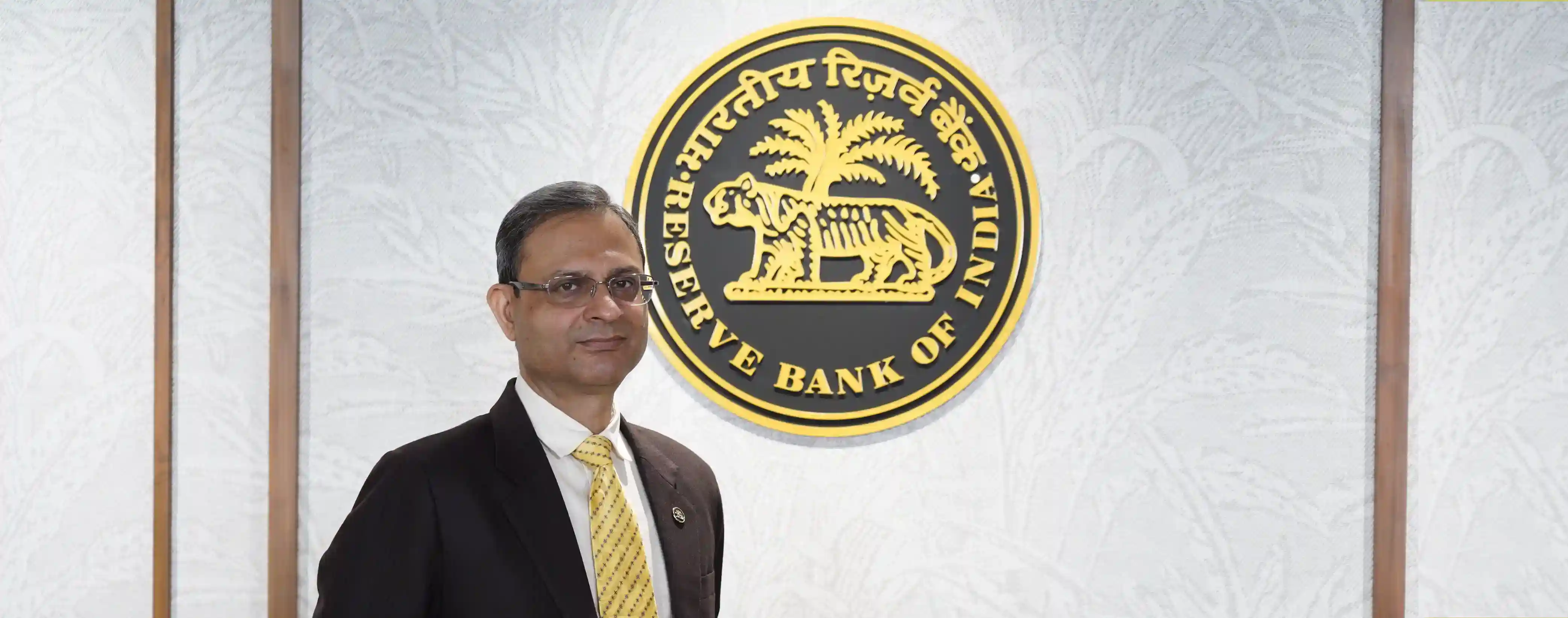 IST,
IST,
Speeches
I am happy to inaugurate the eighteenth Statistics Day Conference of the Reserve Bank. This annual event provides us with an opportunity to reflect on the current and evolving state of statistical system. It also helps us to take stock of the refinements in application of statistical methods and technologies in the realm of public policy.
I am happy to inaugurate the eighteenth Statistics Day Conference of the Reserve Bank. This annual event provides us with an opportunity to reflect on the current and evolving state of statistical system. It also helps us to take stock of the refinements in application of statistical methods and technologies in the realm of public policy.
I am delighted to be here to inaugurate the second edition of the global conference on financial resilience organised by the College of Supervisors (CoS) of the Reserve Bank of India. The first edition of the conference was held last year in April and I had participated in the same. Since its establishment in the year 2020, the CoS has made significant contributions to strengthen supervisory capacity of not just the Reserve Bank, but also the supervisors from a few other countries who have participated in the various programmes organised by the college. My compliments to the Team CoS for their dedication in successfully carrying forward the objectives of the organisation.
I am delighted to be here to inaugurate the second edition of the global conference on financial resilience organised by the College of Supervisors (CoS) of the Reserve Bank of India. The first edition of the conference was held last year in April and I had participated in the same. Since its establishment in the year 2020, the CoS has made significant contributions to strengthen supervisory capacity of not just the Reserve Bank, but also the supervisors from a few other countries who have participated in the various programmes organised by the college. My compliments to the Team CoS for their dedication in successfully carrying forward the objectives of the organisation.
I am deeply honoured to participate in the 79th meeting of the Executive Council (EXCO) of the International Association of Deposit Insurers (IADI). At the outset, I would like to express my profound appreciation for the IADI as a global standard-setter as well as an international forum for the cross-fertilisation of information and country experiences on practices and techniques relating to deposit insurance. The IADI is contributing significantly to building effective deposit insurance systems across the world, thereby strengthening public confidence in the banking system and ensuring financial stability.
I am deeply honoured to participate in the 79th meeting of the Executive Council (EXCO) of the International Association of Deposit Insurers (IADI). At the outset, I would like to express my profound appreciation for the IADI as a global standard-setter as well as an international forum for the cross-fertilisation of information and country experiences on practices and techniques relating to deposit insurance. The IADI is contributing significantly to building effective deposit insurance systems across the world, thereby strengthening public confidence in the banking system and ensuring financial stability.
Deputy Governor Shri Swaminathan, Executive Directors, Chairmen of the Board and ACB of ARCs, MDs & CEOs of ARCs, my colleagues from RBI, ladies and gentlemen,
I am happy to be amidst you today to talk about the crucial topic of governance in ARCs. But before I address the issue of governance, let me briefly discuss the importance of credit risk management and the critical role envisaged for ARCs – both in terms of legislative intent and regulatory expectations, in India’s financial landscape.
Role of ARCs in the Stressed Asset Management
We all know that books of our financial institutions are largely susceptible to credit risk as loans and advances constitute a large proportion of the asset portfolio. The credit risk weighted assets (credit RWAs), in fact, constitute around 80 per cent of total RWAs of the banking system. Therefore, any prudential regulation to safeguard the stability of financial system must remain alive to the credit risk in the books of financial entities, banks and non-banks alike.
Deputy Governor Shri Swaminathan, Executive Directors, Chairmen of the Board and ACB of ARCs, MDs & CEOs of ARCs, my colleagues from RBI, ladies and gentlemen,
I am happy to be amidst you today to talk about the crucial topic of governance in ARCs. But before I address the issue of governance, let me briefly discuss the importance of credit risk management and the critical role envisaged for ARCs – both in terms of legislative intent and regulatory expectations, in India’s financial landscape.
Role of ARCs in the Stressed Asset Management
We all know that books of our financial institutions are largely susceptible to credit risk as loans and advances constitute a large proportion of the asset portfolio. The credit risk weighted assets (credit RWAs), in fact, constitute around 80 per cent of total RWAs of the banking system. Therefore, any prudential regulation to safeguard the stability of financial system must remain alive to the credit risk in the books of financial entities, banks and non-banks alike.
It is my pleasure to be here at the FIMMDA-PDAI annual conference. This year (2024-25) is particularly special for the Reserve Bank. The RBI has entered its 90th year on April 1, 2024. I, therefore, thought it appropriate to dwell upon the journey of the Reserve Bank, especially in the context of its role in developing the financial markets in India in the recent period. I also propose to share some of my thoughts on the way forward.
It is my pleasure to be here at the FIMMDA-PDAI annual conference. This year (2024-25) is particularly special for the Reserve Bank. The RBI has entered its 90th year on April 1, 2024. I, therefore, thought it appropriate to dwell upon the journey of the Reserve Bank, especially in the context of its role in developing the financial markets in India in the recent period. I also propose to share some of my thoughts on the way forward.
Good Evening,
It is indeed a pleasure to be here amidst this distinguished gathering. The theme of the summit, ‘Rise of the Indian Spring’, is both contextual and inspiring, reflecting not just the rising trajectory and profile of the Indian economy, but also the sentiments prevailing within the country and across the world.
Good Evening,
It is indeed a pleasure to be here amidst this distinguished gathering. The theme of the summit, ‘Rise of the Indian Spring’, is both contextual and inspiring, reflecting not just the rising trajectory and profile of the Indian economy, but also the sentiments prevailing within the country and across the world.
As Reserve Bank of India enters its 90th year today, April 1, 2024, it’s time to reflect upon its journey through the multitude of overlapping shocks over the last few years. The pandemic, followed by continuing geopolitical crises in several parts of the world tested the resilience of every economy, including that of India. Nevertheless, it is satisfying to note that, as a country, we’ve navigated through this period of ‘great volatility’ remarkably well.
As Reserve Bank of India enters its 90th year today, April 1, 2024, it’s time to reflect upon its journey through the multitude of overlapping shocks over the last few years. The pandemic, followed by continuing geopolitical crises in several parts of the world tested the resilience of every economy, including that of India. Nevertheless, it is satisfying to note that, as a country, we’ve navigated through this period of ‘great volatility’ remarkably well.
Hon’ble Prime Minister, Hon’ble Governor of Maharashtra, Hon’ble Finance Minister, Hon’ble Chief Minister of Maharashtra, Hon’ble Union Ministers of State for Finance, Hon’ble Deputy Chief Ministers of Maharashtra, Distinguished invitees, Media representatives, and My colleagues from the Reserve Bank, past and present.
Hon’ble Prime Minister, Hon’ble Governor of Maharashtra, Hon’ble Finance Minister, Hon’ble Chief Minister of Maharashtra, Hon’ble Union Ministers of State for Finance, Hon’ble Deputy Chief Ministers of Maharashtra, Distinguished invitees, Media representatives, and My colleagues from the Reserve Bank, past and present.
I am honoured to be invited to Nomura’s 40th Central Bankers Seminar. The discussions here assume topical relevance in the context of the tectonic shifts underway in the global economy that present new challenges for the conduct of central banking. Besides divergent growth pathways and the varying speeds and magnitudes of disinflation, regime shifts impart their own layers of uncertainty.
I am honoured to be invited to Nomura’s 40th Central Bankers Seminar. The discussions here assume topical relevance in the context of the tectonic shifts underway in the global economy that present new challenges for the conduct of central banking. Besides divergent growth pathways and the varying speeds and magnitudes of disinflation, regime shifts impart their own layers of uncertainty.












